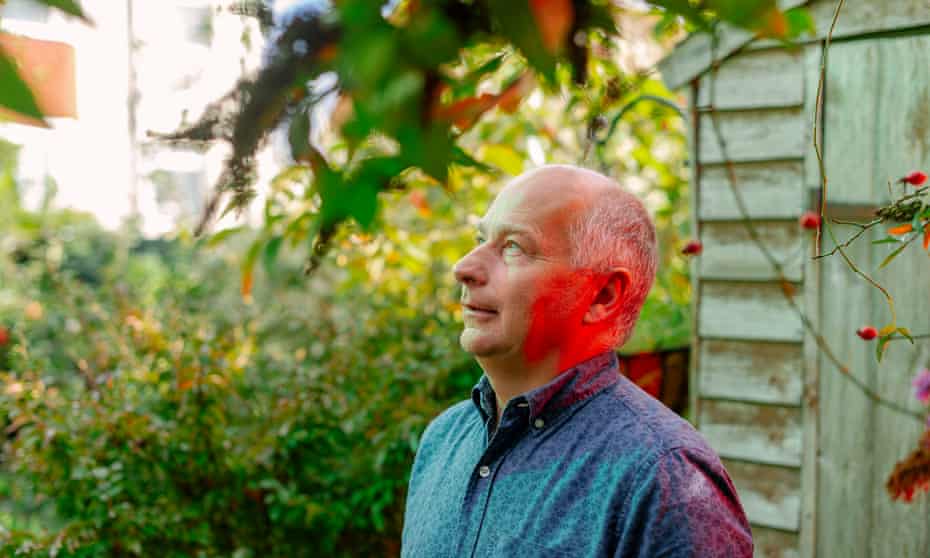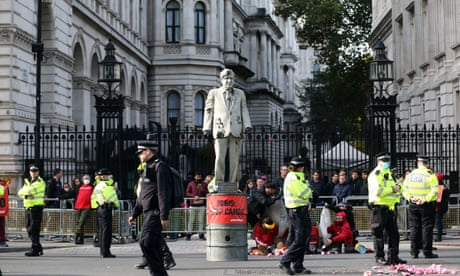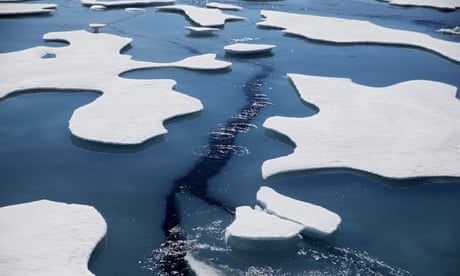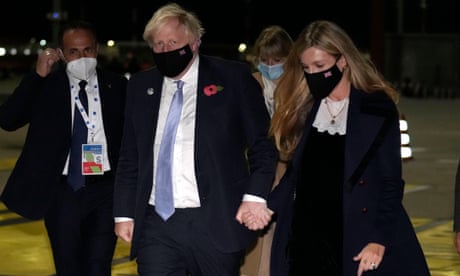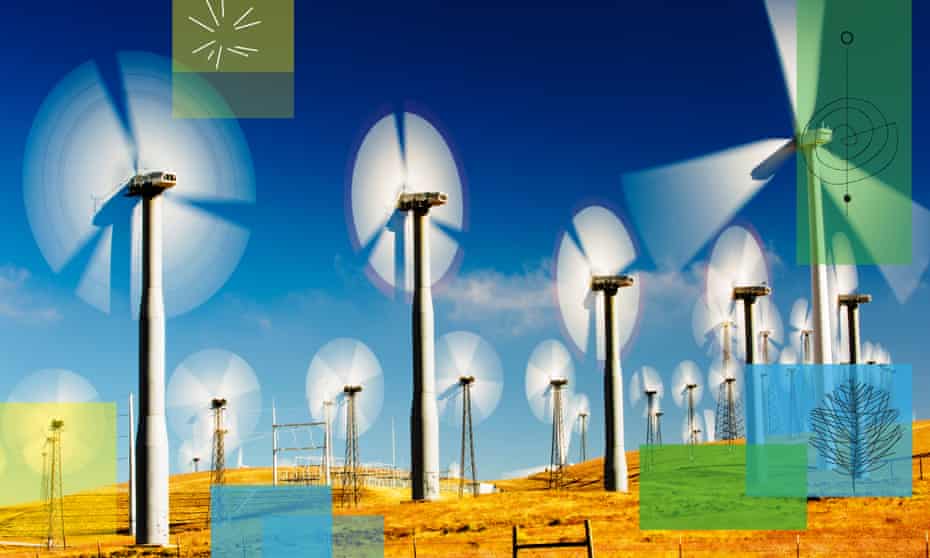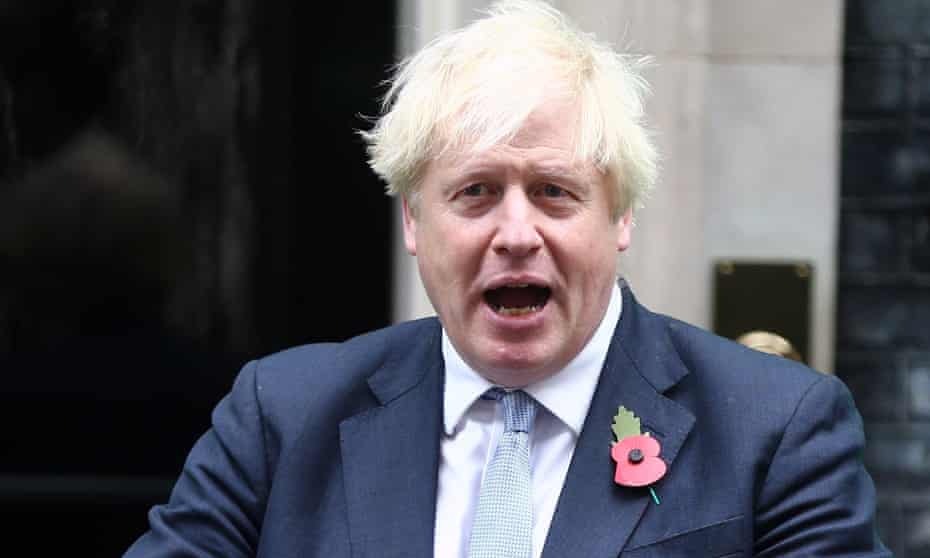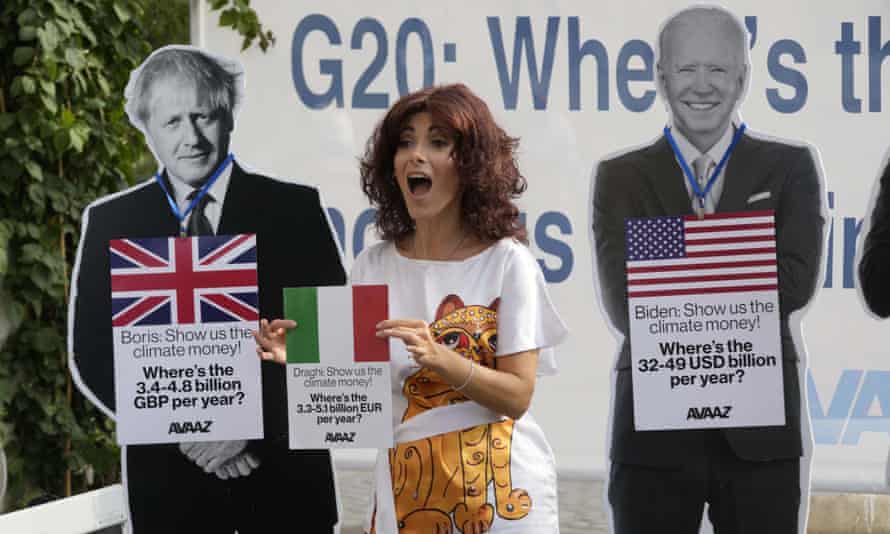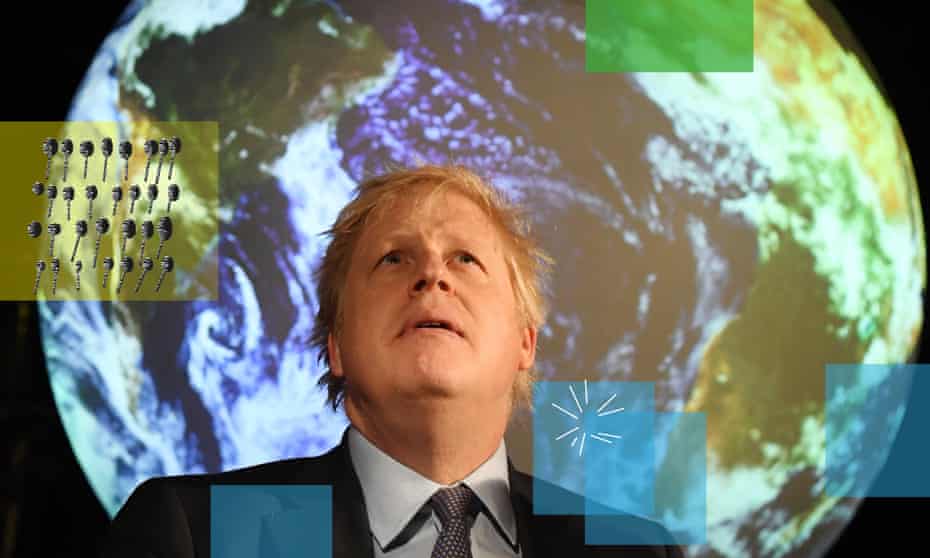Extract from ABC News
Analysis
This is the age of disruptors. And the man who today hops off a plane to take Australia's climate strategy to the world has changed the model of political leadership as we know it.
All this time, we've been thinking the idea was to outline your vision, then campaign, then get elected.
But the Morrison doctrine on climate reveals a new path: Outline what you oppose, then get elected, then shimmy backwards under sniper fire from your own side — all the while denying you're shifting at all — then calmly declare victory, claiming credit for a bunch of stuff you opposed all along.
It's sort of spectacular, in a way. If the spectacle's what you're in it for.
The truly remarkable feature of the climate "deal" ostentatiously fished out by Scott Morrison last week from a performative scrimmage with his own Coalition colleagues, is that it's essentially a redundancy package for conventional political leadership.
After 25 years of parliamentary advocacy, research, vision, frustration, advances, retreats, reversals and waste, the Australian Government's new plan to eliminate net emissions will involve no legislation whatsoever.
Deputy Prime Minister Barnaby Joyce — a man for whom legislation would have involved the inelegant spectacle of his own MPs (and possibly himself) voting against the PM — is understandably relieved by this development for practical reasons.
But he went further last Tuesday after "The Australian Way" was announced, heaping scorn upon the very idea that a significant national initiative would involve a yea or nay from the people's delegates.
"Legislation brings in laws, and laws outlaw things, and laws are enforced with penalties," he jibed at the Opposition during Question Time. "We believe in inspiration and technology, and they believe in laws and penalties."
It's been a strange few years, doubtless. But the visuals of a senior parliamentary figure mocking the very process that we once considered representative of the government's one big job were hard to shake.
'There go the people. I must follow them, for I am their leader'
We've been moving this way for a while. Faith in our parliamentary system is at its lowest ebb in decades. Climate policy, which simultaneously tops the twin lists of Things About Which Australians Are Concerned and Things Our Parliament Has Comprehensively Flubbed For Years, is clearly a factor.
Uncomfortably aware, perhaps, of its own poor odour, the parliament periodically experiments with having other people make the decisions.
Royal Commissions, for example: We've had one a year for the past decade, about twice the rate of the preceding 10 years. The judiciary is one of the few Australian institutions more or less intact, so it makes sense — when there's serious business to be done — to enlist someone in a wig.
Another approach is to chuck it back at the people. When the nation recently confronted the question of whether people of the same gender should be allowed to marry each other, the parliament did everything possible to avoid taking a vote, toying with a referendum, a plebiscite and eventually settling on a postal survey, which confirmed what many had for some time suspected: that MPs were more discombobulated by the idea of gay marriage than was the populace at large.
All the furious political plotting, dealing and double-crossing that went into that issue was not only off the pace, it was ultimately irrelevant — as was the Parliament itself. The people moved on, and eventually the leaders followed, and not much more was heard of the matter.
"There go the people. I must follow them, for I am their leader," goes the remark attributed to Alexandre Ledru-Rollin, a principal rabble-rouser of the French Revolution who fell out of favour post-revolution owing in part to the rather glaring unsustainability of his model.
Which brings us to Scott Morrison, of whom several things can be said that are uncharacteristic of recent Liberal leaders. One: His position is secure and has been so under his entire stint at the helm. Two: He promises fervently to cut the nation's carbon emissions to net zero by 2050. This is not something that has been endorsed by any sitting Liberal PM ever.
Three: He moreover insists that such an outcome is possible not only without job losses or higher electricity prices, but also will require no legislation. At this point, it also requires no modelling or indeed — to an appreciable extent — detail beyond an airy assurance that technological developments will do the work for us.
Let's go back a few years. During the February heatwave of 2017, Scott Morrison — then the Treasurer of Australia — brought a lump of coal into Question Time, in a memorable symbolic gesture. The idea was to taunt the Opposition and various Labor states over their ambitious targets for renewable energy.
It was an important piece of branding; something of a coal whistle to colleagues that would come in handy the following year when the Liberals — having decided finally to skittle the pro-renewables Malcolm Turnbull — cast about for a coalier-than-thou alternative, and couldn't quite stretch to Peter Dutton.
But how does a political leader reinvent himself from coal hero to net zero in less than five years?
How a leader changes his mind
At the Department of Foreign Affairs and Trade, they used to teach new recruits a diplomatic tactic called the Handy Heel. It's a device that allows the practitioner to escape an awkward or unprofitable conversation at a diplomatic event. Here's how it works.
Step One: Feign enthusiasm, while conversing with the person you wish to escape.
Step Two: Rock back and forth gently on one's heels, cloaking with one's animation the fact that with every rock, you are pivoting your feet away from the target, in imperceptible increments. Enthusiasm is the key! The more you wave your hands, the less likely it is that your podalic perfidy will be detected.
Step Three: When your feet have shifted 90 degrees and are pointing clearly away from the conversation partner, you have the opportunity to turn your body to match, say "Oh! Isn't that the undersecretary of State? Do please excuse me. I need to deliver an urgent message. Wonderful to see you!"
The theory is that the turning-away is deniable right up to the stage at which you make good your escape. But the quiet reorientation of the body makes the break — when it comes — almost impossible to prevent.
What is the point of this story? It is the best analogy I can think of for the way Scott Morrison changes his mind. He is an absolute master of the Handy Heel.
We all remember the 2019 election campaign, in which the ALP's ambitious climate targets constituted a road to oblivion for the PM, their lack of costing and modelling an utter disgrace, their electric car targets the scourge of the weekend. Morrison was re-elected, as you'll no doubt recall.
When, on February 1st this year, Morrison first declared at the National Press Club that Australia was aiming to get to net zero "preferably by 2050", he dismissed under questioning any suggestion that this constituted a change of position. The new form of words only attracted a question or two. To be fair, the nation was facing a pandemic. Much hand activity. Rock and pivot.
Then came a Business Council of Australia dinner in April, where the PM announced some new technological priority points along the "road to net zero". Note the assumed destination; the PM's feet discreetly ticked around to a quarter-past-three on the clock, while he distracted attention with an especially elaborate set of hand gestures, declaring, "We will not achieve net zero in the cafes, dinner parties and wine bars of our inner cities".
These remarks elicited exactly the loud degree of outrage on one hand and approval on the other that was, one suspects, intended.
What about believability — and trust?
In the past few weeks, a veritable dance party of upper-body gesticulation has occupied the nation's attention: Deadlines for the National Party to submit to net zero. Coordinated media calls in which groups of senior Nats have walked with purpose, together, towards camera. Talk of deals, inland rail lines, and forensic examination of terms. Hand gestures like you wouldn't believe!
But watch the feet.
Last Tuesday, when the PM announced that everyone agreed on net zero, and there was no modelling to explain exactly what that meant, and that essentially the Nats got one more spot in Cabinet and that was it for now, it shouldn't really have been a surprise, because that's the way the feet were pointing.
The manner of how a leader executes a change is one thing. And perhaps it could charitably be argued that — in this fraught policy area, with the historical political bodycount so high — the only way to make progress is under cover of darkness.
But what do we make of a leader who changes his mind without admitting he's done so? What does it mean about the believability of any stance he takes? Of the stance he affects right now?
Given Morrison's evisceration of Bill Shorten just three years ago for failing to provide precise modelling for Labor's proposed emissions targets, how is it that he can now breezily commit to a target 29 years away with the assurance that a substantial amount of the heavy lifting will be done by technological wizardry currently beyond our ken?
Can you trust a man who exempts himself so readily from the standards he imposes on his opponent?
There are other questions: The tidal shift of global finance is not new. There is zero chance that either the Treasurer or the PM was unaware back in 2019 that Australia would be penalised by global markets for clinging to coal. Did the Treasurer just fail to spot this? Did the PM? Or was winning government in 2019 — courtesy of the climate scare — more important than looking after the national interest?
Further: Glasgow has been in the diary for five years now; the Government's been aware of it for all that time, and it's the same Government.
How likely is it, honestly, that a Government that leaves a five-year deadline until the Tuesday before is going to make timely, hard decisions to work towards a target with 30 years left on the clock?
"The path to net zero is not linear," is Morrison's explanation for his failure to escalate Australia's 2030 targets in a way that would create any confidence that he is ridgey didge about 2050.
If we extrapolate from the last five years, one might assume that the nation, or at any rate the 11th Morrison Government (its leader breasting his ninth decade of life) will finally knuckle down to net zero in September 2049 by means of a three-month-long press conference with the National Party, at the conclusion of which Keith Pitt will be given six jobs in Cabinet.
In Australia, everyone's playing their own tune
Realistically, we know that in this area even legislative commitments made by Australian governments do not weather the depredations of time and political instability.
A further, deeper question beckons. Why is it that national climate policy can now be made without legislation?
To put it brutally: It's because others have moved unilaterally into the space that our political leadership has vacated over the last 15 years.
Think of the climate policy ecosystem as an orchestra. Ideally, a prime minister would conduct it; various sections would play their hearts out, benefiting from the light regulatory touch of a smart person with a good ear who knows what's going on.
This is the point of a federal government — right? Knowing when the energy mix needs more brass, sensing when to bring in the woodwinds.
In Australia, however, owing partly to the regular assassination of conductors, the musicians have gone out on their own. Everyone's playing their own tune.
Australians have got on with installing rooftop solar, realising that their itch for action isn't going to be scratched by the government. The renewables industry in this country has exploded not because of, but largely in the absence of decisions taken in Canberra.
Important federal instruments like the Renewable Energy Target, the Clean Energy Finance Corporation and the Australian Renewable Energy Agency have played on despite quite serious attempts on their lives by the very same government which now seeks to take their achievements on tour to Glasgow.
State governments and large emitters — tired of waiting for certainty at a federal level, and aware of the mounting global penalties accruing to high-emissions players — have embarked on their own performances, setting their own targets.
For their pains, these states and organisations have endured years of jeers from federal ministers and from the Murdoch newspapers booing from the peanut gallery.
The increased takeup of electric vehicles — a prospect lustily belittled in 2019 by the Prime Minister, his campaign spokesman Mathias Cormann and the above-mentioned Murdoch papers last election as a deep insult to the Aussie tradition of pulling heavy things with one's vehicle — is now a part of the national plan.
(Just for completeness, Mathias Cormann himself now runs the OECD — thanks to an Australian campaign fuelled by taxes, not technology, hussshhhhh — and is calling for a global carbon price, as well as organisationally reproaching for climate laggardliness the country whose previous carbon price he was personally instrumental in dismantling.)
The collected efforts of all the above-mentioned players now constitute the national symphony premiering this week in Glasgow as "The Australian Way".
As a political leader, it's rare enough to enjoy the warm glow of policy calls you've got right. To be the beneficiary of measures you've actively disparaged... well. That's really something. A miracle, even?
Scott Morrison, as the Australian conductor packing all these achievements into his Glasgow kitbag, hopes to win applause for his orchestra's performance. But when the musicians have been playing on their own for a decade, what is a conductor? He's just a man waving a chopstick.
How voters change their minds
What are the levers that shift people and companies on this issue? There are two, basically: Fear, and money.
Fear of leaving an uninhabitable planet for our children is what drives public sentiment. It peaks in times of great drought, like in 2007, when fear of a changing climate swung public support behind Kevin Rudd.
John Howard also went to that election offering an emissions trading scheme. He was convinced to do so by his departmental secretary Peter Shergold and the Australian Business Roundtable on Climate Change, which in a 2006 report recommended early action on carbon abatement would be a prudent choice. That report argued prompt action would secure a better GDP outcome than putting it off until — ahem — 2022.
"As business leaders representing a cross-section of the Australian economy, we believe that climate change is a major business risk and we need to act now," urged the report's authors, who included the chief executives of IAG, Origin Energy, Visy, Westpac and BP. "Delayed action may lead to a major disruptive shock."
The senior executives were not driven by fear. They were responding to an apprehended risk to their business models. Money, in other words.
After the 2007 election, Kevin Rudd's advocacy for a carbon trading scheme sought to harness the fear of the populace. He painted a vivid oratorical picture of the coming catastrophe. Describing climate as "the great moral challenge of our generation", Rudd was resisted by a determined cabal of sceptics in the Coalition, who in turn rallied the community's fear of higher power prices and $100 lamb roasts.
The scene was set for the holy wars between climate believers and non-believers that would ravage the Australian political landscape for a further decade and a half.
What will end the climate wars? Money, probably. Big Australian emitters and finance giants reliant on the free flow of capital are now advocates of net zero because the global market penalises those not on board.
Why has News Corp leapt aboard the net zero bandwagon? Not because key executives have suddenly woken up worried about polar bears. The company's changed because its big advertisers demand it, and its customers are already on the bus.
In any doubt of this? Check out the ads Coles and Woollies ran on high rotation and at huge expense during the Olympics. The price of groceries didn't rate a mention; both retail giants used the slots to spruik their commitment to eliminating emissions.
When Scott Morrison announced his "Australian Way" last Tuesday, it was immediately noted that he uttered the word "plan" more than 100 times in a relatively short press conference. If you were listening out for the word "environment" you'd have struggled, apart from a reference or two in which its significance was downplayed, viz: "It's an energy trade and economic plan, not just an environmental plan."
The hip-pocket factor — for both companies and individuals — has shifted significantly. The fear of a "Great Big New Tax" is no longer most strongly associated with a carbon price or other emissions reduction mechanisms; it's shifted to fear of the punishment incurred for doing nothing.
Only those who continue to take a religious approach are immune from this shift. Matt Canavan, for instance, the former resources minister who has solidly opposed carbon pricing on cost-of-living grounds, recently called for Australia to resist global market pressure to decarbonise — even if doing so made life more expensive for ordinary Australians.
"Yes, it might mean we pay higher interest rates but that is worth it to protect our independence and to keep Australians in charge of how we are governed," he said.
But the vast bulk of Government MPs have, like their leader, shifted to accommodate the new reality. A commitment to net zero is the bare minimum.
Which means that when the Australian people next come together to decide on who leads us (this being a feature of our representative democracy that is — unlike legislation — entirely unavoidable), things are going to look very different from the 2019 election.

